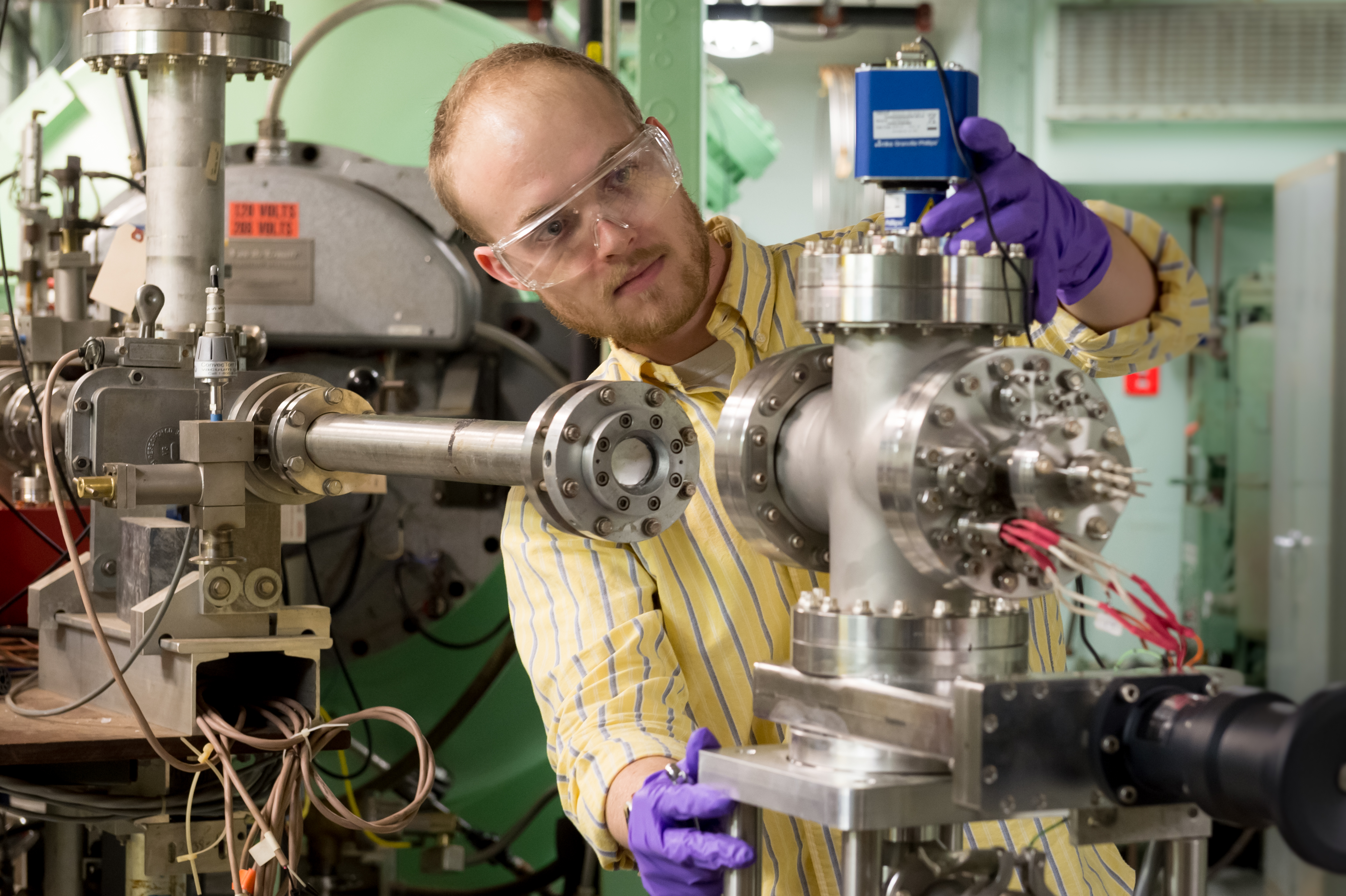Nuclear Engineering alumnus lands on Forbes 30 Under 30
In its seventh installment, the energy sector of the Forbes 30 Under 30 list highlights an impressive collection of upstarts who are viewed as having the highest potential in the broad field of energy.
“It’s an honor to be named to the Forbes 30 Under 30 list,” said Hamilton. “It’s great to get the validation for my ideas and my company, and a great way to get exposure out to potential investors and collaborators.”
During his undergraduate years, Hamilton, along with three other Purdue alumni - Joshua Auger, Kyle Harris, and Kyle Pendergast - founded Atlas Energy Systems and developed the Atlas Power Cell. This device has the capability to utilize spent nuclear fuel, or nuclear waste, and convert the residual radiation energy into consumable electricity.
Hamilton envisioned this optimal power source during his undergraduate years in Materials Science at Purdue University, which then brought him to pursue a masters degree in Nuclear Engineering after realizing he needed the background to further develop this idea.

His passion to advance the Atlas Power Cell introduced him to Nuclear Engineering Professor Robert Bean who provided lab space to conduct research, utilize his lab equipment, and even allowed Hamilton to buy his own equipment – which was an unusual ability for a graduate student.
Professor Bean reflected on when he first met Hamilton and was introduced to what seemed like a crazy idea of repurposing nuclear waste. “I humored him and agreed to be an advisor for this project,” said Bean. “This idea ultimately matured and advanced, as did Ian”. Hamilton continued pursuing his passion and along the way mentored numerous undergraduate students which left a legacy of excitement about nuclear technology.
Hamilton conclusively landed at Argonne National Lab in Lemont, Illinois, after being selected for Argonne’s Chain Reaction Innovations (CRI) program, an initiative to expedite the development of sustainable and energy-efficient technologies by providing development costs for startups and innovators.
Giving high-credit to the School of Nuclear Engineering, Hamilton admits “I don’t think I could be doing what I am or be here [at Argonne National Labs] without the masters program in Nuclear Engineering at Purdue.”
As for the future, Hamilton says his goals “are to continue with my company and grow it to a large distributed energy company and defense contractor.” He also plans to expand to new types of direct energy conversion nuclear reactors as well as novel solar and wind devices.
To learn more about Atlas Energy Systems, visit atlasenergysystems.org
To learn more about Argonne National Laboratory CRI participants, visit chainreaction.anl.gov/innovators.
